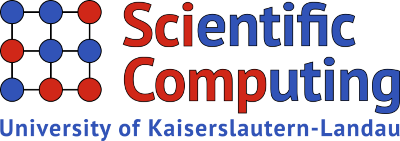Date and Place: Thursdays and hybrid (live in 32-349/online via Zoom). For detailed dates see below!
Content
In the Scientific Computing Seminar we host talks of guests and members of the SciComp team as well as students of mathematics, computer science and engineering. Everybody interested in the topics is welcome.
List of Talks
Event Information:
-
Thu11Dec2014
SC Seminar: Anil Nemili
11:30SC Seminar Room 32-349
Anil Nemili, SciComp
Title:
Optimal Active Separation Control on High-Lift ConfigurationsAbstract:
During the landing and take-off phases of a modern commercial aircraft, high-lift devices are used to generate extra amount of lift to reduce the landing and take-off speeds and to shorten the runway length. However, at high flap deflection angles, the flow over the flap is prone to turbulent separation on the suction side. This results in a rapid fall in the lift while the drag increases enormously. In order to delay or suppress the separation and to enhance the lift, active flow control techniques can be employed. In these techniques, jets of fluid are injected or sucked through a narrow slot to add momentum to the boundary layer. The additional momentum due to actuation causes re-energisation of the flow, which delays the separation and thus aerodynamic stalling. Typically, the intensity of the actuation is controlled by varying the parameters of actuation like amplitude, frequency, phase shift and blowing angles. Effective separation control and thus enhancement in aerodynamic performance can be achieved by finding optimal set of actuation parameters. An efficient way of finding the optimal set of actuation parameters is by using the gradient based optimisation algorithms combined with discrete adjoint method. Towards this objective, a discrete adjoint method has been developed for incompressible URANS equations. The adjoint code is generated by applying the Algorithmic Differentiation (AD) tool Tapenade to a primal URANS code. The performance of the adjoint solver in accurate computation of unsteady sensitivities will be demonstrated. Numerical results will be presented for optimal active separation control on several geometries, ranging from simple airfoils to practical high-lift configurations.
